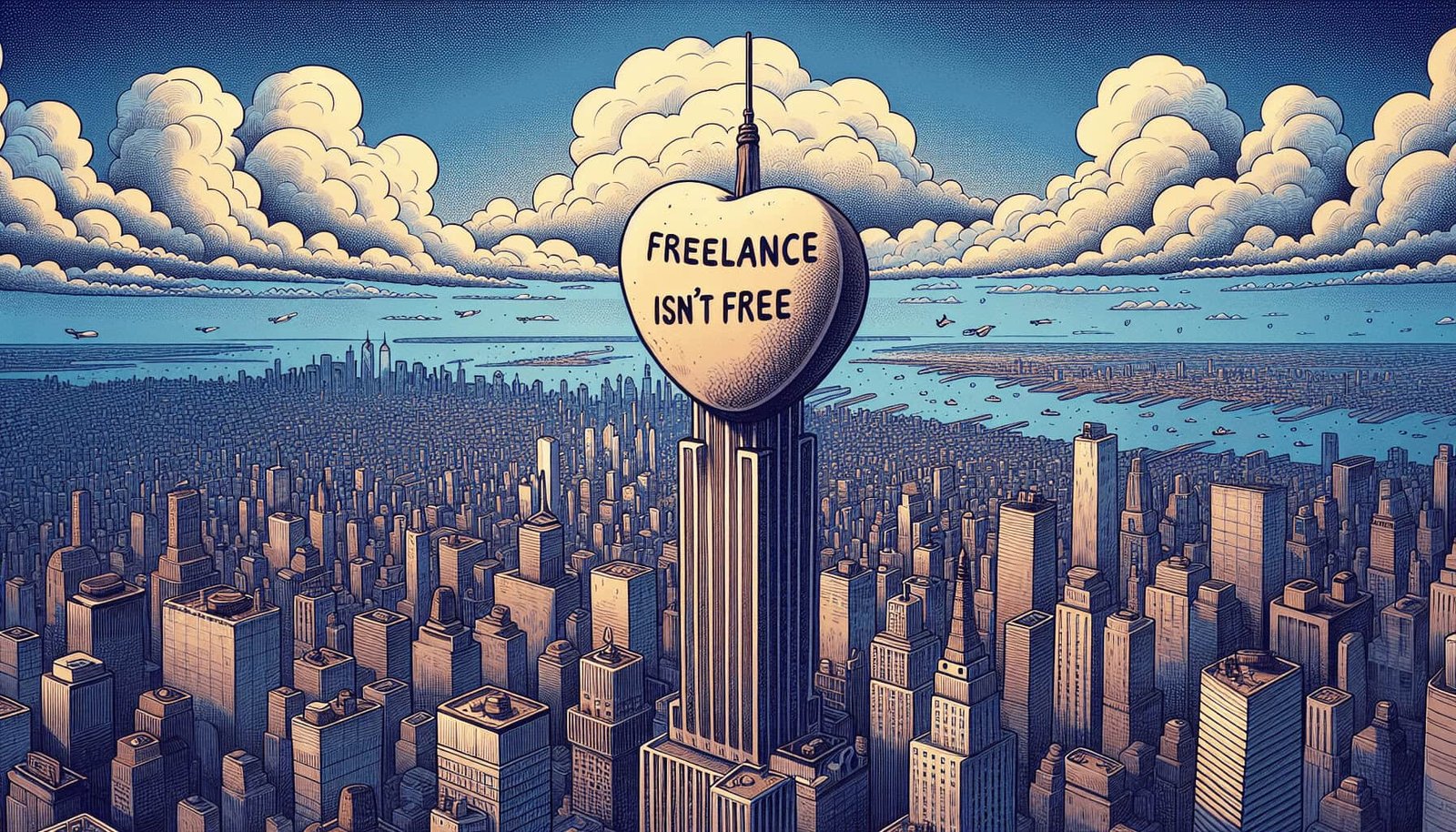In a bid to protect freelance workers, New York has implemented the ‘Freelance Isn’t Free’ law which mandates that freelancers be paid within 30 days of completing their work. This new legislation comes as a response to the rising gig economy and the increasing number of individuals taking up freelance work. With a record-breaking 64 million Americans turning to gig work in 2023, this law aims to ensure fair and timely compensation for freelancers. By requiring payment within a specific timeframe, the law seeks to address the issue of delayed or non-payment that many freelancers face. The ‘Freelance Isn’t Free’ law is a significant step towards recognizing and protecting the rights of freelance workers in New York.

Overview of the New York ‘Freelance Isn’t Free’ Law
The New York ‘Freelance Isn’t Free’ Law, enacted in 2017, was designed to protect the rights and interests of freelance workers in the state. The law sets certain provisions for freelancers, including payment deadlines, penalties for non-payment, and legal remedies for enforcement. It has significant implications for both freelancers and employers and has sparked various responses and reactions from different parties. Similar laws exist in other jurisdictions as well. However, the law has also faced challenges and criticisms.
Key Provisions of the Law
The ‘Freelance Isn’t Free’ Law sets several key provisions that aim to address common issues faced by freelance workers. One of the main provisions is the requirement for a written contract for any work exceeding $800. This contract must include specific details such as the scope of work, rate of pay, and payment terms. Additionally, freelancers are entitled to timely and full payment for their services, as well as protection against retaliation for asserting their rights under the law.

Payment Deadline and Penalties
The law establishes a deadline for payment of freelance services. Clients are required to make payment within 30 days of the completion of services or the receipt of an invoice, whichever is later. Failure to comply with this deadline can result in penalties for the client, including double damages, attorney fees, and other costs.
Enforcement and Legal Remedies
Freelancers who experience non-payment or other violations of their rights under the law have legal remedies available to them. They can file a complaint with the New York City Department of Consumer Affairs (DCA) within two years of the violation. The DCA has the authority to investigate complaints, issue penalties, and take legal action on behalf of freelancers. Freelancers also have the option to pursue a private right of action in court, where they may be entitled to additional damages.

Implications for Freelancers
The ‘Freelance Isn’t Free’ Law has significant implications for freelance workers in New York. It provides them with important protections, such as the right to a written contract and timely payment. These provisions help to ensure that freelancers are treated fairly and are compensated for their work. Freelancers now have a legal recourse in case of non-payment or other violations, which increases their confidence and security in their work.
Impact on Employers
Employers in New York are also affected by the ‘Freelance Isn’t Free’ Law. They are now required to comply with certain provisions to avoid penalties and legal consequences. This includes ensuring that written contracts are in place for work exceeding $800 and making timely payment to freelancers. Employers may need to review their processes and policies to ensure compliance with the law and prevent any potential violations.

Responses and Reactions
The enactment of the ‘Freelance Isn’t Free’ Law has elicited various responses and reactions from different parties. Freelancers and worker advocacy groups have largely welcomed the law, as it provides them with much-needed protections and remedies. Some employers have also shown support for the law, recognizing the importance of fair treatment and timely payment for freelancers. However, there have been criticisms and challenges as well, particularly from certain business organizations and individuals who argue that the law imposes unnecessary burdens on employers.
Similar Laws in Other Jurisdictions
New York is not the only jurisdiction that has enacted laws to protect freelance workers. Several other states and cities across the United States have implemented similar legislation to safeguard the rights and interests of freelancers. These laws vary in their provisions and scope, but they generally aim to address prevalent issues faced by freelancers, such as non-payment and contract disputes. The ‘Freelance Isn’t Free’ Law in New York serves as a model for other jurisdictions in developing their own freelancers’ protection legislation.

Challenges and Criticisms of the Law
Despite its positive intent, the ‘Freelance Isn’t Free’ Law has faced challenges and criticisms since its implementation. Some argue that the law places an unnecessary burden on employers, especially small businesses, who may struggle to comply with the requirements. There are concerns that the law could potentially discourage businesses from hiring freelancers or lead to increased costs for freelance services. Additionally, there have been criticisms regarding the enforcement of the law and the effectiveness of the penalties imposed on non-compliant clients.
Conclusion
The New York ‘Freelance Isn’t Free’ Law has introduced important provisions to protect the rights and interests of freelance workers in the state. Freelancers now have clearer guidelines for written contracts, payment deadlines, and legal remedies in case of non-payment. The law has implications for both freelancers and employers, ensuring fair treatment and timely payment. While it has received support from many, criticisms and challenges remain. Overall, the law represents a significant step towards improving the working conditions and rights of freelance workers in New York.
